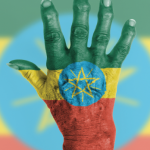Rheumatic diseases were once thought of as rare on the African continent. But one session during the 2018 ACR/ARHP Annual Meeting, Oct. 19–24 in Chicago, will dispel this perception. During the session, three speakers with three perspectives will give presentations on the state of rheumatic disease in Africa.
AFLAR: Out of Africa: Of Rheumatic Diseases: Pattern, Genetics & Advocacy
Monday, Oct. 22, 8:30–10 a.m
The first presentation will address the seeming cocoon against these diseases in Africa, which is attributed to a lack of awareness, scarce medical resources, limited diagnostics and ingrained, sociocultural fear of these diseases.
The huge burden of musculoskeletal diseases is often eclipsed by more recognized infectious diseases. This means rheumatic conditions tend to be relegated to the background, with patients experiencing worse outcomes in Africa.
Despite increasing reports in academic literature, public perception of these diseases is that they are nonexistent, and without advocacy, getting African governments to dedicate resources to them and letting patients know it’s okay to come out as having these conditions are difficult.
What is the advocacy story from Africa, and what is the role of patients? The second presentation will put the spotlight on The Rheumatology Initiative (tRi) from Ghana, as well as other initiatives.
The global perspective on the spectrum of rheumatic musculoskeletal diseases in the African setting is generally obscure. Emerging evidence suggests similarities in the spectrum of rheumatic musculoskeletal diseases across Africa with that in other parts of the world. These data were obtained largely from hospital-based studies in urban populations. However, very little is known about rheumatic musculoskeletal diseases in rural African communities.
This presention will draw the attention of the international rheumatology and global health community to the increasing burden of rheumatic musculoskeletal diseases in a rural African context. It will expand on the challenges and road maps to sustainable efficient rheumatology care in a poor-resource environment.
Finally, the third presentation will address tuberculous (TB) and non-TB mycobacterial infections in Africa. Skeletal TB refers to that affecting the bones and/or joints. It’s an ancient disease that has been found in Egyptian mummies dating as far back as 9,000 years. Musculoskeletal involvement in TB is rare and seen in just 1–3% of patients with TB. About half of these cases affect the spine and the rest affect extraspinal osteoarticular joints, such as in Poncet’s disease, or tubercular rheumatism that presents during acute TB infection as a nondestructive polyarthritis without evidence of direct mycobacterial involvement of the joints nor any other known cause of polyarthritis detected.



